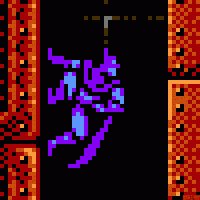Hark, the Golden Age of Prospero Hall is in full swing.
On the cover, five women (including two non-white characters) are posed in fairly realistic fighting gear, ready to defend the matriarchal island of Themiscyra in an outstanding co-op design from those amazing designers at Prospero Hall, working under the Ravensburger banner. I think it’s a big deal - Wonder Woman: Challenge of the Amazons is the first fantasy adventure game (and in some ways, war game) that I can think of that features an all-female cast of characters. There’s not a token Steve Trevor player and Superman, for all intents and purposes, doesn’t even exist in this DC Comics licensed design. The sole male presence is Ares, the evil god of war. Men just don’t figure into this, except for the one interloper looking to despoil the Amazons’ paradise.
It’s such a beautifully made game, as you’ll see unpacking it to the table. The Hero cards, which the Amazons use in their three-part Battle Plans to take action against one of three adversaries (Cheetah and Circe are the others), are not illustrated with kitsch pictures of the characters in action. They are titled with adjectives (Resourceful, Experienced, Nimble, and so on) and each has a wonderful illustration of a natural aspect symbolizing that quality. The Villain cards also have this, swapping virtues for vices (Tyrannical, Brutal, Threatening). It kind of blew me away that something so thoughtful, sophisticated, and genuinely elegant was a part of this game’s presentation. The rest of it looks wonderful as well- gold miniatures for each of the Amazons, white marble textures, actual comic-quality art instead of the usual birthday party favor level junk we see in most games based on comic books.
It's a co-op, and that is going to immediately cause some to groan or grimace. Yeah, it’s very Pandemic. But that is kind of the point, as this game is on shelves at mainstream retailers near Pandemic. And this is an excellent step up from that perennial favorite into something slightly more complex and compelling. It’s supremely accessible, despite Prospero Hall really pushing the hobby-class design elements a little harder than they have in previous titles.
Sure, some of the design is pretty obvious. The villain does things based on cards- they may move around, put out various cubes (which represent different adversaries, obstacles, or challenges based on who the villain is for the game), and at the end of the round they damage Themiscyra based, typically, on how much materiel they have across the board or in the central palace. There are other objectives they might win from, such as Cheetah’s quest to find three artifacts accompanied by her lycanthrope followers.
The player rounds find the Amazons dealt a couple of face-up hero cards and at least three face down. These cards have emblems along the bottom in different values. Each Amazon has to plot three action to take over the course of the round, and this is done with all players only having knowledge of the open cards. The actual plotting is done without communication, so everyone has cards that the other players aren’t aware of. That sound you hear is the Alpha player gnashing their teeth as their authority over the game and other players’ decisions disintegrates.
As each action is resolved in any order, there is a ton of coordination, combination, and strategically sequenced execution. Working out how to handle dangerous situations, put some damage on the villain, seek out artifacts, team up to combine strength, or simply survive another round can be quite challenging and quite satisfying. There’s more “crunch” than you might expect.
Each action card’s emblems can be enhanced and increased in a number of ways- some action cards double them, you might get a bonus for playing it in the first/second/third action slot, artifacts may double specific types of cards, and you can join forces with another Amazon at your location to add them up. This is important because the game is balanced such that with the base values you are often left short of the value you need to deal damage or accomplish a task.
One of the game’s more brilliant ideas, however, is that you can recruit Amazon Warriors at key places on the board, provided you have the Leadership emblem on your action card while you are there. These cubes can all move with you, and each one is effectively a +1 to any value. The catch is that they are expended when you use them. This is such a cool element as it makes the game feel almost like a light wargame, with Diana and her fellow leaders raising armies to beat back the opposition. What’s more, they create another strategic angle as you might have one Amazon recruit and then take the Warriors to assist another on their action.
This is a brilliant, effortless co-op design. I get it that a lot of hobbyists are “over” co-ops and some were never on board with them to begin with. And I’m sure the garbage BGG parrot takes on this game will include that it is “whack a mole” and I’ve already seen some bemoan that Diana is balanced with the other Amazons and somehow has a “crappy” power (it isn’t). But the reality is that this is a very studied, very precise kind of design that fits right into that noble goal of merging the broader possibilities of hobby game design with mainstream accessibility and production values. It’s a $35 game you can buy at Target that is a more mature, sophisticated design than most $100 games you’ve got to buy at boutique shops or preorder on Kickstarter.
And I don’t think it can be overstated that this is a game that, if you are playing with Circe or Cheetah, completely passes the Bechdel test. If you are playing with Ares, you are striking a blow against male aggression. Male gaze doesn’t exist here, and this game is very much a story about strong, bold women leading, defending, and supporting themselves without men. I think this is awesome, especially since fantasy games have for too long been mired in tasteless sexism both overt and sublimated. It’s a fantasy game that daughters, wives, girlfriends, partners, and mothers can enjoy without feeling embarrassed or disgusted at content aimed at the sexual attention of teenage boys. It’s also the best comic book game I’ve ever played – completely respectful of the source material, presenting it in a dignified and beautiful way. It’s also one of Prospero Hall’s best games to date, which puts it in a class with Villainous and Jaws.
 Games
Games How to resolve AdBlock issue?
How to resolve AdBlock issue? 

























